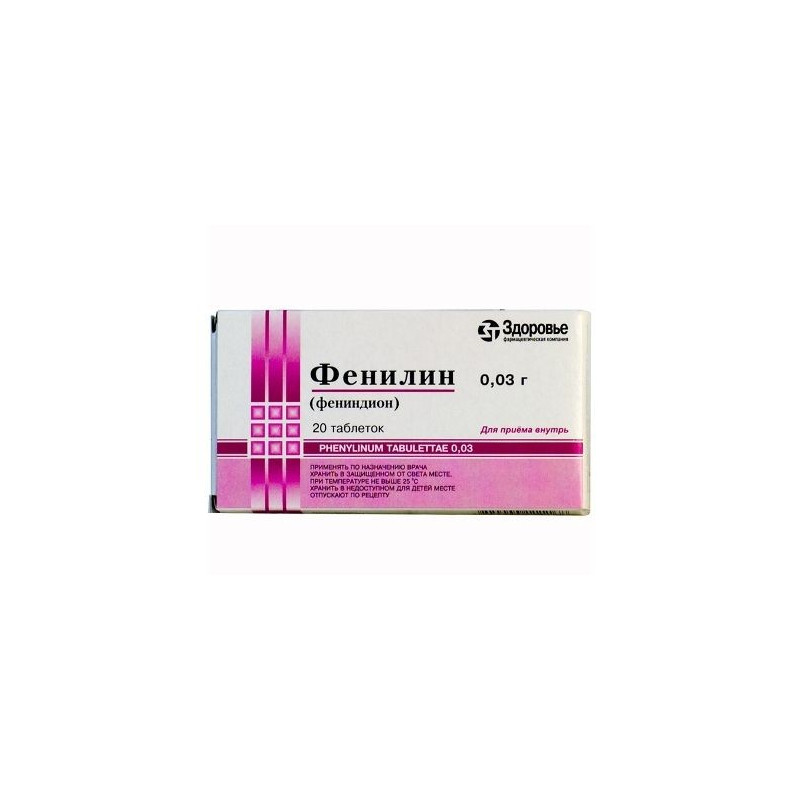



 All payments are encrypted via SSL
All payments are encrypted via SSL
 Full Refund if you haven't received your order
Full Refund if you haven't received your order
1 pill contains:
Milk sugar, potato starch, talc, citric acid.
In the blister pack of 20 tablets. In packing 1 blister.
After ingestion quickly and almost completely absorbed.
Histohematic barriers pass and accumulate in the tissues.
Metabolized in the liver.
Excreted by the kidneys in unchanged form and in the form of metabolites.
Fenilin refers to the means that affect blood clotting, indirect anticoagulants.
It causes hypoprothrombinemia, caused by a violation of the process of formation of prothrombin in the liver, and also reduces the formation of factors VII, IX and X. The cumulative effect of phenylin is greater than that of neodicoumarin. When ingestion reduction in the concentration of coagulation factors occurs within 8-10 hours after taking fenilina and reaches a maximum after 24-30 hours.
Use in the first trimester of pregnancy is contraindicated.
Phenylin should not be administered in the first days after birth.
Caution is prescribed for:
You should not prescribe fenilin during menstruation (taking the drug is stopped for 2 days before the onset of menstruation) and in the first days after birth.
May cause allergic reactions (dermatitis, fever), diarrhea, nausea, hepatitis. Possible headache, fever, suppression of bone marrow hematopoiesis, with long-term use - micro-and gross hematuria.
In some patients, the palms are colored orange and the urine is pink. Occasionally, phenylin may cause bleeding.
With simultaneous use with Heparin, salicylates, sulfonamides, cimetidine, an increase in the anticoagulant effect is noted. Enhance the effect of anabolic, azathioprine, Allopurinol, Amiodarone,narcotics, androgens glands.
Propranolod, urine alkalizing agents, vitamin K, Ascorbic acid, antacids, phenazone, barbiturates, Haloperidol, diuretics, Carbamazepine, oral contraceptives, meprotan, rifampicin, Kolestiramin weaken the effect of fenindione.
The drug is prescribed inside.
On the first day, they take in a daily dose of 0.12-0.18 g (in 3-4 doses), on the second day - in a daily dose of 0.09-0.15 g, in the following days - at 0.03-0, 06 g per day, depending on the level of prothrombin in the blood (the prothrombin index is maintained within the range of 50-40%).
The highest dose for adults inside: single - 0.05 g daily - 0.2 g
Treatment with phenylin is carried out under the strict supervision of a physician with the obligatory systematic examination of the blood levels of prothrombin and other factors of blood clotting. Termination of treatment should be carried out gradually.
For the prevention of thromboembolic complications prescribed by 0.03 g 1-2 times a day.
In acute thrombosis, phenylin is prescribed together with heparin.
Treatment should be carried out under close medical supervision with a mandatory systematic study of the blood levels of prothrombin and other clotting factors.
Systematically conduct general urine tests for early detection of hematuria.
In some patients, the palms are stained orange and urine pink, which is associated with the metabolism of fenilina and is not dangerous.
